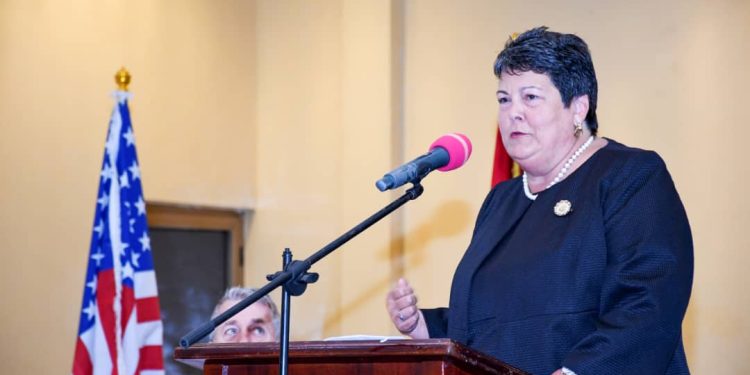
The United States Ambassador to Ghana, Virginia Palmer, has explained the recent U.S. visa restrictions aimed at individuals who disrupt democratic processes in Ghana. This policy was introduced in anticipation of Ghana’s December 7 elections and is part of a broader strategy by the U.S. to deter anti-democratic activities globally.
Under Section 212(a)(3)(C) of the U.S. Immigration and Nationality Act, the U.S. Department of State can impose visa restrictions on individuals believed to be involved in actions that undermine democracy. The policy targets those engaged in activities like election manipulation, violence, or intimidation of voters, civil society, or media representatives.
Ambassador Palmer clarified that this policy is not directed at the Ghanaian government or any political party. Instead, it serves as a preventive measure to discourage misconduct and promote peaceful elections. She expressed hope that the policy would encourage early signing of peace pacts and foster decorum ahead of the polls.
“Ghana is the fourth African country where we’ve implemented this policy, and it has been used in Europe and Latin America as well,” Palmer said, emphasizing that the visa ban is a tool the U.S. will continue to apply where democracy is at risk.
 GhArticles.com Every News in Detail
GhArticles.com Every News in Detail

